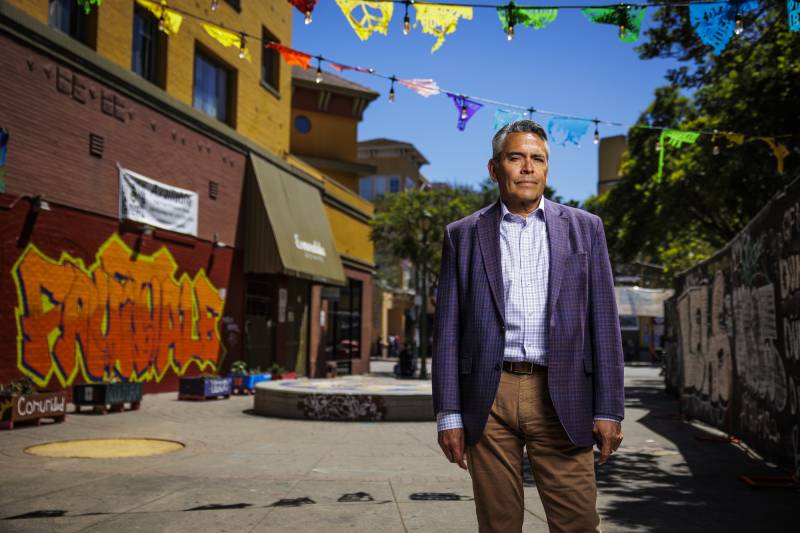“They need to be part of the economy of the Bay. They can’t be coming from the Central Valley every day.”
The Unity Council completed the first phase of the Fruitvale Transit Village, including 47 apartments for low-income residents, in 2004. Since then, the organization has developed, rehabilitated or preserved 591 apartments in Oakland and 235,000 square feet of commercial space across 10 properties in the city.
In January, the Unity Council partnered with Bridge Housing to complete Casa Sueños, a 181-unit apartment building at 3511 East 12th St. in Oakland. The organization is now working to redevelop the site of the tragic Ghost Ship fire, where 36 people died in 2016.
Besides housing, the Unity Council runs Head Start child care centers for low-income preschoolers, operates a teen mentorship program in local high schools and provides workforce training, among other programs. The organization has an operating budget of $34.8 million and 347 employees.
“We’ve just kind of evolved over 60 years to meet the needs in the community,” Iglesias said. “It’s not because we want to be a big organization.”
The organization rose to the occasion and so did Iglesias, albeit reluctantly. When former CEO Gilda Gonzalez approached him about taking her job, he thought, “Are you out of your mind?”
Before joining the Unity Council, he’d spent more than two decades working in city government in San Francisco. He trained and recruited workers for city-financed construction jobs and connected small businesses with city contracts. He also ran San Francisco’s Human Rights Commission and later a construction workforce development program called City Build for then-Mayor Gavin Newsom.
Iglesias, who was born in Oakland into a large family with roots in Mexico, recalled spending much of his childhood at his paternal grandmother’s home in West Oakland, and he had aunts, uncles and cousins all over the town.
“It was culture, the language and food were always kind of front and center with how I grew up,” he said.
When he was 7, his parents bought a home in Concord because, even in the 1970s, affording a home in Oakland was challenging for working-class families. He went to San Jose State University on a football scholarship. There, he discovered an interest in real estate after working on construction during summer breaks in college and after graduating.
He enjoyed watching empty lots turn into finished buildings and remembers one day seeing a group of men in suits overlooking the workers. He recalled telling his father that he wanted to be the one planning and making decisions on buildings.
Throughout his career, he’s combined his technical knowledge of construction with an understanding of connecting communities with opportunities and resources. Leading the Unity Council allowed him to reconnect with Oakland, and he regularly runs into relatives and family friends when he’s out eating lunch or at events.
“It’s kind of like a homecoming,” he said. “Not just for me, but like my tias and my cousins and for everybody. We feel like this is where we all started.”
It can be hard to stay optimistic given the onslaught of today’s social problems, so Iglesias focuses on strengthening the organization’s programs, finding more ways to provide affordable housing and connecting with future Latinx leaders.
“I see this wave of talent coming up, and I feel like I’m at [the] point in my career — I need to tee them up as much as I can and lay the groundwork for them,” he said. “I tell them, ‘You can take this job. You could have my job, or you could have the governor’s job. But you need to be thinking like that.’ And a lot of times, it startles them.”
He’s observed that people in the Latine community often want to be humble, stay in the background and not take up too much space. It’s a cultural trait that doesn’t always serve us.
“As an organization, I felt like I had to remind folks that it’s OK to have money and it’s OK to go get money,” he said. “We have to be able to get what we need to do the work because our work is really important.”
This story was reported for K Onda KQED, a monthly newsletter focused on the Bay Area’s Latinx community. Click here to subscribe.

